Running out of oat flour and need a quick substitute for making gluten-free granola bars and snacks? Replace the grain with these oat flour substitute solutions you probably have on hand!
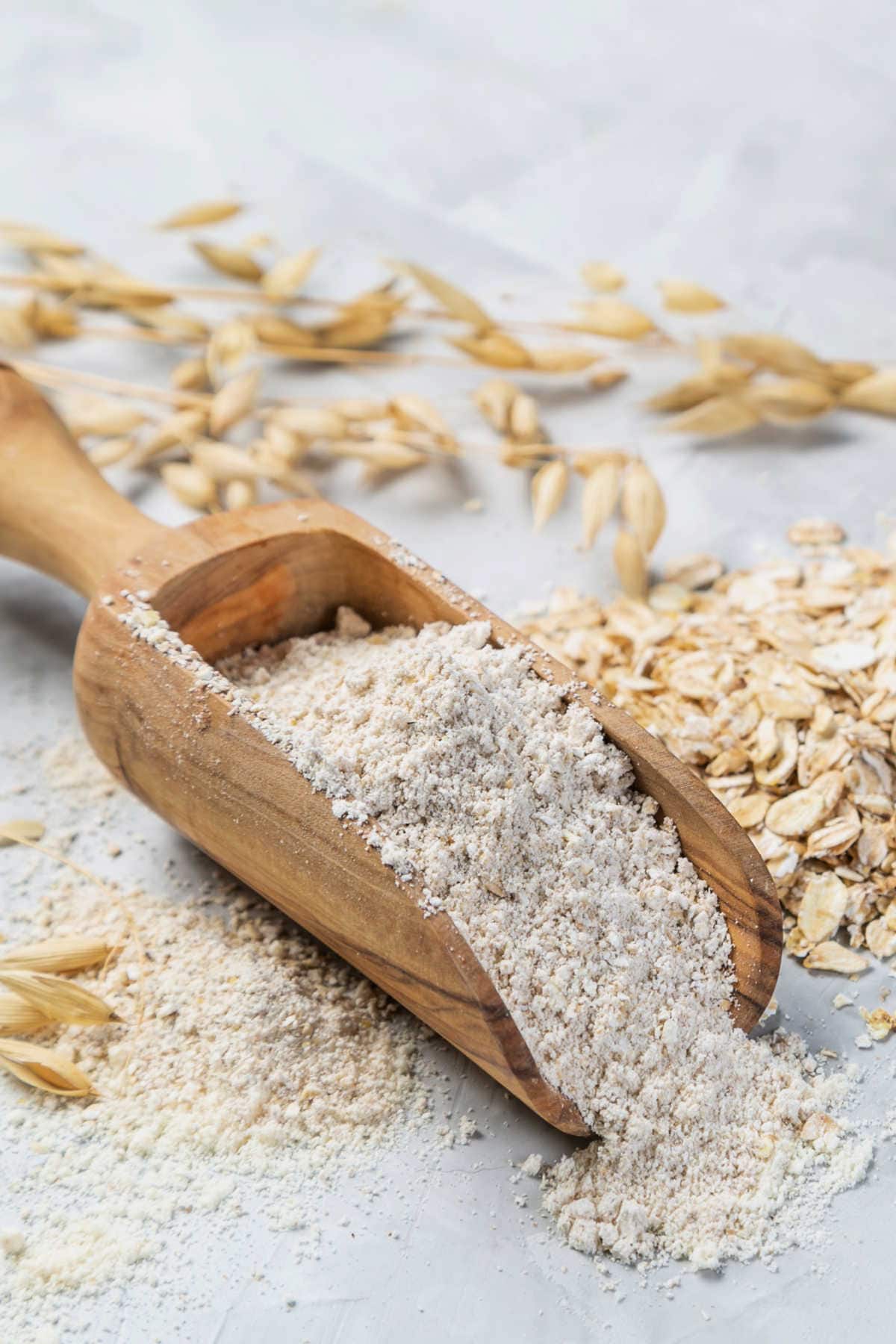
Are you in the middle of making homemade flourless muffins and come to find you have run out of oat flour and oats? Wondering what to substitute for the oat flour in a recipe when baking and cooking? Here’s our favorite alternative gluten-free flours to use in place of oat flour! For tips on how to use these alternatives, keep reading, as we break each flour down!
oat flour substitutes
Substitute oat flour with these alternative whole grains and gluten-free flours.
- Gluten-Free Flour - prefer one like Bob's Red Mill 1-1 Baking (affiliate link)
- Almond Flour
- Brown Rice Flour
- Coconut Flour
Best Substitutes for Oat Flour
Below is a breakdown of oat flour substitute solutions and tips on how to use them in and baking!
1. Gluten-Free Flour Premix
This one is my favorite substitute for oat flour and seems to work great in baking with a similar consistency.
Gluten-free flour blends and oat flour are interchangeable and can be substituted for oat flour in a 1:1 ratio in most cases. Since some gluten-free flour blends are lighter and do not absorb as much liquid, I recommend substituting one that contains no dairy and is made with rice flours (rather than quinoa flour blends). If using glute-free flour in place of oat flour I suggest Bob's Red Mill 1-1 Baking (affiliate link).
Play around with this one as slightly more flour (a tablespoon at a time) may be needed.
2. Almond Flour
Almond flour is slightly heavier than oat flour as it contains natural oils but makes baked goods light and fluffy and is a wonderful alternative to oat flour!
This sweet nutty flour is made from blanched almonds that are ground down into a fine flour and add lovely natural sweetness to baked goods in gluten-free baking.
Alternatively, you can use almond flour in combination with coconut flour (which is a heavier flour) for a sweeter treat. For 1 cup of oat flour, substitute it with ½ cup almond flour and ½ cup coconut flour. Or use almond flour in a 1 to 1 ratio to oat flour.
Almond flour is nuttier in flavor and has a different texture than oat flour so the taste and result will be different.
3. Brown Rice Flour
Rice flours are a commonly used gluten-free flour in baking. Brown rice flour makes a great substitute you can use instead of oat flour but not in an equal ratio.
Brown rice flour is very different than sweet rice and white rice flour. It has its husks and is less processed so it contains more fiber and nutrients and not as much sugary starch like sweet rice contains. More water may be required when using it in baking due to the high absorption of liquids.
In gluten-free baking, brown rice flour mixes best with other gluten-free flours and light starches and works well to thicken soups when used in the beginning of cooking.
To use brown rice flour in place of oat flour use ¾ cups of brown rice flour in place of each cup of oat flour.
Check out How to Make Rice Flour here with this rice flour recipe!
4. Coconut Flour
Coconut flour has a beautiful aroma with natural sweetness that adds beautiful flavor to baked goods, granola bars, and desserts. It is also loaded with fiber, which may promote healthy blood sugar levels. Coconut also contains MTC oils and fats that are healthy and known to boost the metabolism. Coconut flour is a great oat flour substitute you can use in its place.
I suggest mixing coconut flour with equal amounts of almond flour. So if a recipe calls for 1 cup of oat flour, use ½ cup coconut flour combined with ½ cup almond flour. This works beautifully for cakes and cupcakes!
To use just coconut flour in place of oat flour, more liquid or less coconut flour might be needed, depending on the recipe. Coconut flour is heavy and absorbs more liquid.
What is oat flour
What exactly is oat flour and how do you use it? Oat flour is steel cut oats or old fashioned rolled oats ground in a food grinder, mill, or coffee grinder into a fine flour. It makes a wonderful substitute for flour in gluten-free baking. Make sure the oats specifically say "certified gluten-free". Some oats when farmed and harvested are cross contaminated with wheat.
Oat flour is one of the healthiest flours to use with amazing benefits as they contain healthy carbohydrates and are an excellent source of important vitamins, minerals, fiber, protein, and antioxidants.
Tip: Oat flour in baking absorbs more liquid than some flours. When using a substitute, the alternative flour may not absorb as much liquid so play around with the texture and amounts.

Frequently Asked Questions
Oat flour is very healthy containing protein, fiber, vitamins and minerals that are naturally produced in the grain. Oat flour is an excellent gluten-free flour to use in muffins, cakes, cookies and all your baked goods!
Oat flour is made from ground oats or whole oat groats that are ground in a mill. You can make oat flour at home using a coffee grinder, high powered blender or food processor and grinding the oats or groats until it becomes a fine flour.
Oat flour is not the same as all purpose flour. It will not rise equally in yeast bread, but oat flour is a wonderful substitute for regular flour in other gluten-free baking. It has more nutritional benefits than white flour and is not processed or bleached, making it much better than regular flour or all-purpose flour.
More Cooking and Baking Substitutes
I hope you find this article helpful on finding the best oat flour substitute! Follow me on INSTAGRAM, PINTEREST, FACEBOOK, YOUTUBE and TWITTER to be featured and for more recipe inspiration! And don't forget to rate the recipe in the recipe area and leave a comment below.
📖 Recipe
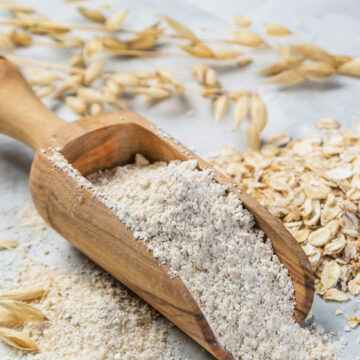
Oat Flour Substitute
Ingredients
- ¾ cup brown rice flour
Instructions
- Substitute 1 cup of oat flour for ¾ cup of brown rice flour. See notes below for making homemade brown rice flour.
Notes
Nutrition
Pin and Save this post!



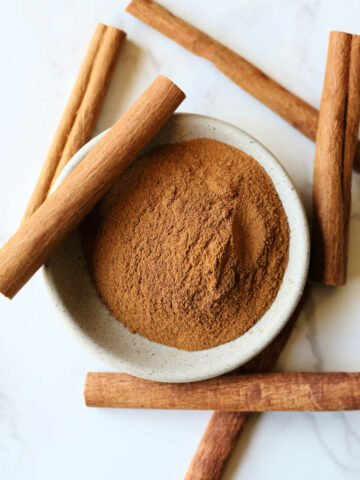
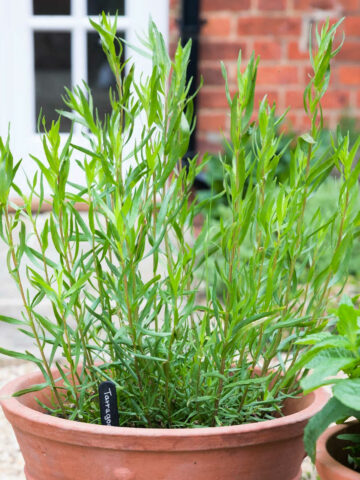

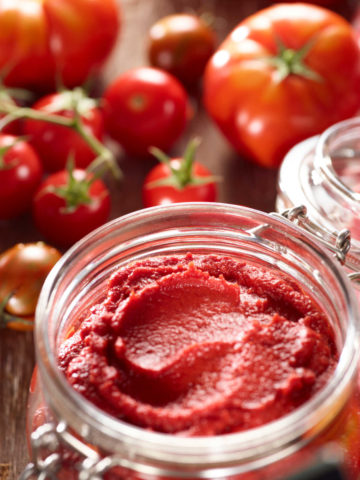

Leave a Reply